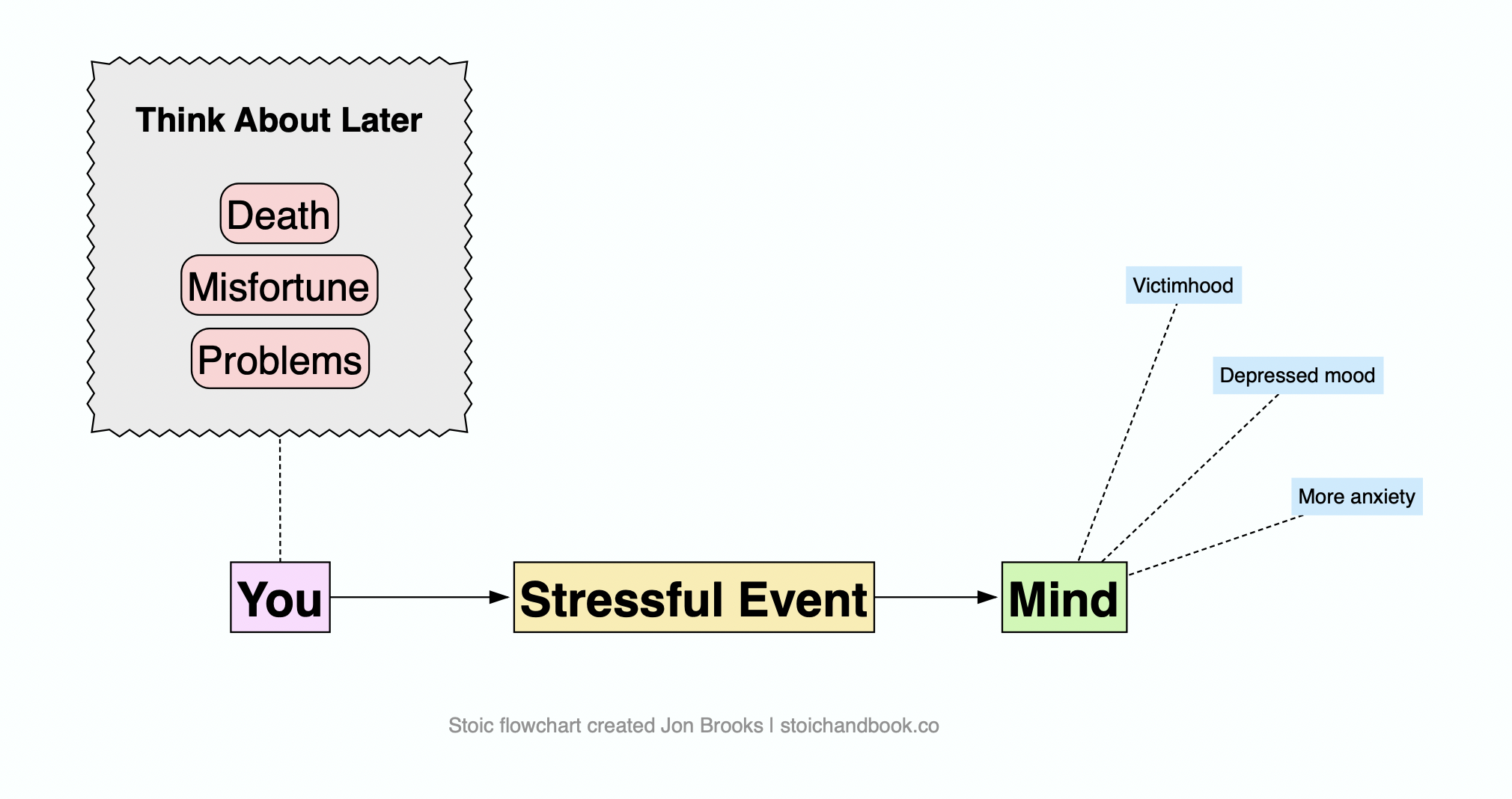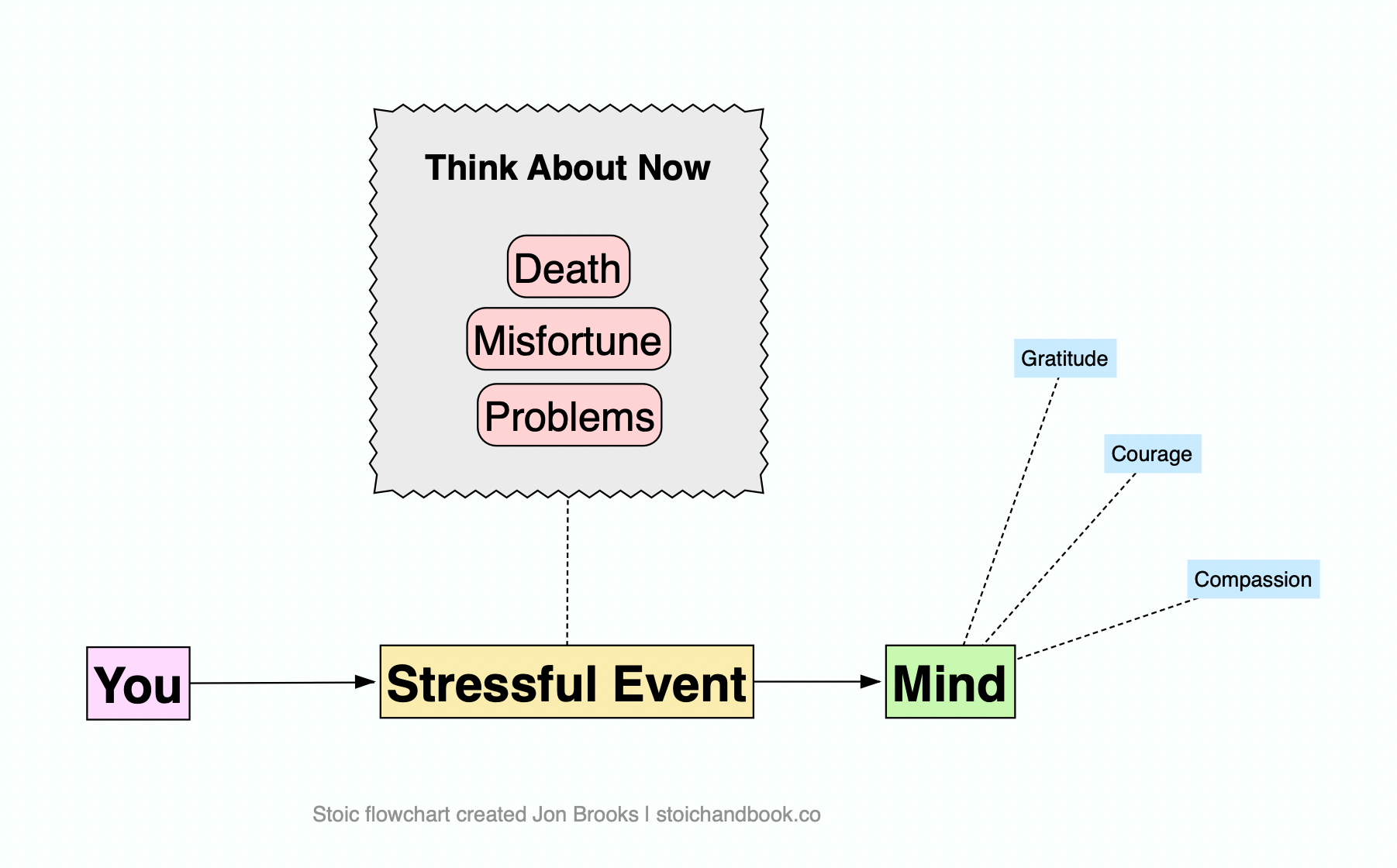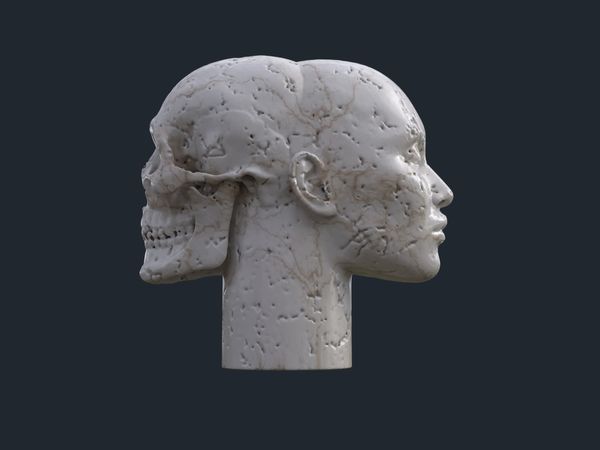No matter how well things appear to be going now, grave tragedy might be lurking just around the corner.
This is not a thought designed to provoke anxiety, but rather a reminder to highlight the nature of how life actually is.
Very often people don't expect...
- To get a life threatening illness
- To get into a car accident
- To have surgical complications
- To lose their business due to unforeseen events
- To make a mistake and get locked up
These things are not at all uncommon. They happen all the time to people just like you and I.
One way to deal with the changing fortunes of life and unexpected tragedy is to put them out of mind. To focus on the "positive" and to deal with issues only as they arise.
This strategy, if one is capable of doing it, can certainly help with managing stress.
Putting things in a mental box called "Think About Later" and forgetting about it, can help if you're feeling overwhelmed.

But there are three important questions one must ask about this or any system for dealing with uncertainty before we commit to using it:
- Is it difficult?
- Is it effective?
- Is there a better alternative?
When you are feeling overwhelmed, stressed, or anxious how possible is it to just "not think about it?"
Some may be able to do this, but it is by no means something we can all do. It is difficult.
This bring us to our second question: is it effective?
We know that avoiding things that cause is discomfort weakens us. Conversely, facing challenges voluntary makes us more courageous.
The Stoics, not surprisingly, had an alternative method for navigating tragedies that await us that is directly opposite to the "out of mind" approach:
Prepare for them.
When you keep in mind the prospect of death, misfortune, loss, etc., on a regular basis 4 magical things happen:
- You grow more courageous because you face reality as it is
- You make better decisions to prevent possible misfortune
- You become more grateful for any glimmer of peace in the present
- You are able to see the true value of things more clearly
When all these 4 benefits are combined, negative thoughts and cravings decrease.

Desired Difficulties
Ordinary life can be very difficult at times. Working, managing one's time and energy, staying healthy, and raising a family are completely normal parts of life, but also very stressful at times.
If you are bringing up a young child, for example, you might become frustrated if they act in naughty ways or don't listen or go to bed on time.
You may tell yourself stories about how difficult being a parent is and how much less time you have left to do things anymore. You may identify as a victim.
And yet the days when our children are the most naughty and and we are the most stressed would be the greatest gift we could ever receive if our children were taken from us by fortune.
Many of the difficulties in our lives would be desired by us when contrasted with a true tragedy.
As a practicing Stoic, the first stage is to learn how to cope with difficulties. But beyond this, we must learn to love them.
We can train this skill by imagining the very real misfortunes that have occurred to others and may occur to us.
We may complain about the gym being far away from us, but one day we may not be well enough to train altogether.
We may stress about the way our parents communicate with us, but one day there will be no communication at all.
This is almost obvious and cliche when someone just says something like "be grateful for what you have because one day you might not have it."
The true power in this sentence is not in understanding it, but by turning it into a daily practice.
Keep in mind the transient nature of life at all times. Meditate on it frequently.
This is a direct path to wisdom.
ENCHIRIDION CHAPTER TWENTY ONE, EPICTETUS, TRANSLATION BY ROBERT DOBBIN:
Keep the prospect of death, exile and all such apparent tragedies before you every day – especially death – and you will never have an abject thought, or desire anything to excess.
